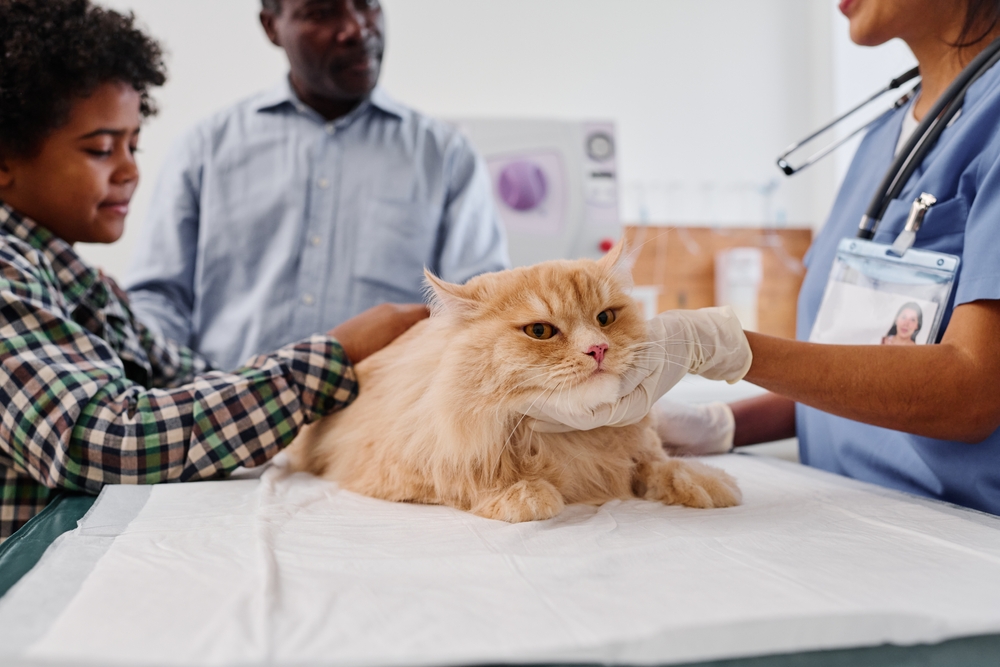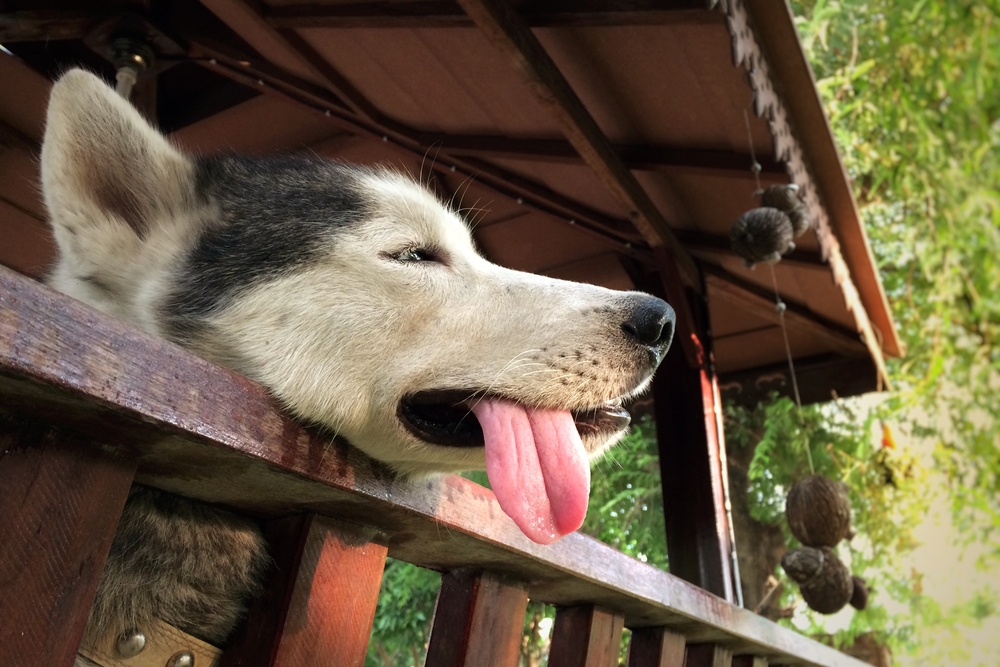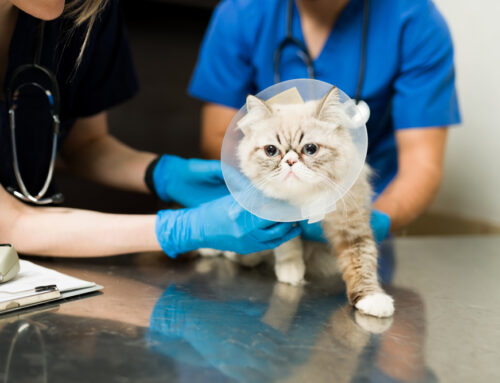Dog Diarrhea Decoded: Causes and When to Call Stack Veterinary Hospital
Even the healthiest dogs occasionally have digestive issues. But when your dog suddenly develops diarrhea, the uncertainty can be stressful. Is it something minor? Something they ate? Or something more serious?
At Stack Veterinary Hospital in Syracuse, we know that digestive symptoms like diarrhea are among the most common and concerning reasons pet owners reach out. In this guide, we’ll walk you through the most frequent causes of diarrhea in dogs, what symptoms to monitor, and when to seek veterinary care.
Understanding Diarrhea in Dogs
Diarrhea is typically defined as frequent, loose, or watery stools. It may appear with:
- Increased urgency
- Mucus or blood in the stool
- Vomiting or lack of appetite
- Changes in behavior or energy
One mild episode isn’t always alarming, but ongoing or severe diarrhea requires a closer look.
What Causes Diarrhea in Dogs?
1. Sudden Diet Changes
Dogs thrive on consistency. A sudden switch in food, or eating unfamiliar treats, can lead to digestive upset. Whether it’s a new diet or too many table scraps, the result is often short-term diarrhea.
To help prevent these issues, this guide to transitioning dog food outlines how to make gradual changes over 7–10 days.
2. Food Sensitivities or Allergies
Dogs can develop sensitivities to common proteins like chicken or beef, as well as grains, dairy, or additives. Reactions often include chronic diarrhea, skin problems, or ear infections.
This overview of how to choose the right pet food explains what to consider when selecting a long-term diet.
3. Intestinal Parasites
Worms and protozoa like giardia can affect dogs of any age, but puppies are especially vulnerable. Parasites are often picked up from contaminated water, soil, or other pets.
Watch for:
- Soft or mucousy stools
- Visible worms
- Bloating or gas
- Weight loss
The AVMA’s guide to intestinal parasites explains how these infections spread and why routine testing is so important.
4. Bacterial or Viral Infections
Dogs can pick up bacteria such as E. coli or Salmonella, especially from raw diets or spoiled food. More serious infections, like canine parvovirus, cause severe symptoms including vomiting, bloody diarrhea, and dehydration.
This resource on canine parvovirus explains how the disease progresses and why it’s a medical emergency in young or unvaccinated dogs.
5. Pancreatitis
Pancreatitis is inflammation of the pancreas and is often triggered by fatty meals or table scraps. Dogs with pancreatitis may develop vomiting, lethargy, and abdominal pain alongside diarrhea.
This AAHA resource on pancreatitis in pets offers an in-depth explanation of the condition, symptoms, and treatment approaches.
6. Ingesting Toxins or Foreign Substances
Dogs explore the world with their mouths, which makes them prone to ingesting harmful items like:
- Household cleaners
- Toxic plants
- Human medications
- Grapes, chocolate, or onions
Contacting the ASPCA Pet Poison Control can help you take quick action if exposure is suspected.
7. Stress and Anxiety
Moving, visitors, fireworks, boarding, or even changes in schedule can cause stress-induced diarrhea. While this usually resolves quickly, ongoing symptoms may point to an underlying issue.
8. Unsafe Treats or Improper Food Storage
Treats that are too rich, spoiled, or not intended for dogs can cause stomach upset. The CDC’s food safety tips for pets offer helpful guidelines to keep your dog’s food safe from contamination.
9. Environmental Hazards in the Home
From kids’ toys to plants, the average household is full of items dogs might try to chew or eat. These tips for pet-proofing your home can help prevent accidents that lead to gastrointestinal trouble.
When Is Diarrhea a Medical Emergency?
Mild diarrhea that resolves in 24 hours is often nothing to worry about. But call us right away if your dog is:
- Having repeated or explosive diarrhea
- Passing blood or black, tarry stool
- Vomiting multiple times
- Weak or lethargic
- Refusing food or water
- Showing signs of abdominal pain
This Cornell resource on dog diarrhea helps clarify which cases are urgent. Our team is here to help with emergency and urgent cases during our open hours- please call us first to allow us to prepare.
What to Expect at Stack Veterinary Hospital
When you bring your dog in for a diarrhea-related exam, we start by reviewing their recent history, diet, and environment. From there, we may recommend:
- Fecal testing to identify parasites
- Bloodwork to evaluate organ health and hydration
- Imaging if a blockage is suspected
- Diet trials to rule out food-related causes
As a practice with over 65 years of continuous AAHA accreditation, our standards of care reflect our deep commitment to patient safety, precision, and compassionate communication.
Treating Diarrhea in Dogs
Treatment depends on the cause and may include:
- Anti-diarrheal medication
- Fluid therapy for dehydration
- Probiotics to restore gut balance
- Prescription food or bland diet
- Antibiotics, if an infection is present
- Dewormers for parasites
We work with you to ensure treatment fits your dog’s needs and your household’s routine. Our care team is always available to walk you through feeding schedules, medication instructions, and follow-up plans.
How to Prevent Diarrhea in the Future
While not every episode is avoidable, you can reduce the risk by:
- Feeding a consistent, high-quality diet
- Avoiding rich table scraps and sudden dietary changes
- Using parasite prevention year-round
- Keeping toxic items safely stored
- Scheduling regular wellness exams and keeping vaccinations up to date
Routine visits allow us to detect early signs of disease and keep your dog on track with diet, vaccines, and parasite control. Our goal is to support both short-term recovery and long-term digestive health.

We Believe in Thoughtful, Collaborative Care
At Stack Veterinary Hospital, we’re more than your dog’s vet- we’re your partner in care. We listen closely, explain clearly, and treat your pet with the same level of respect and attention we’d expect for our own animals.
Our mission is to support you in caring for your dog confidently, even when things get messy. Whether it’s a single episode or a recurring issue, we take diarrhea seriously- because we know your dog’s comfort matters.
Schedule an Appointment Today
If your dog’s diarrhea isn’t improving, or if you’re noticing other symptoms alongside it, let’s take a closer look.
Call us at (315) 478-3161 or request an appointment online. Our team is here to help you care for your pet like the hero they believe you are.
Stack Veterinary Hospital – A legacy of pioneering medicine. A culture of trust.







Leave A Comment